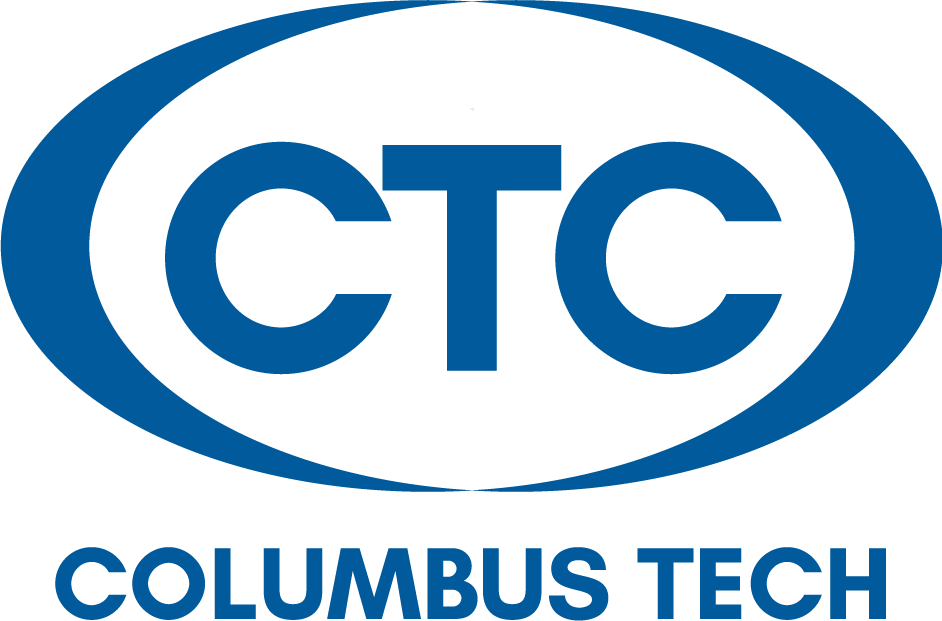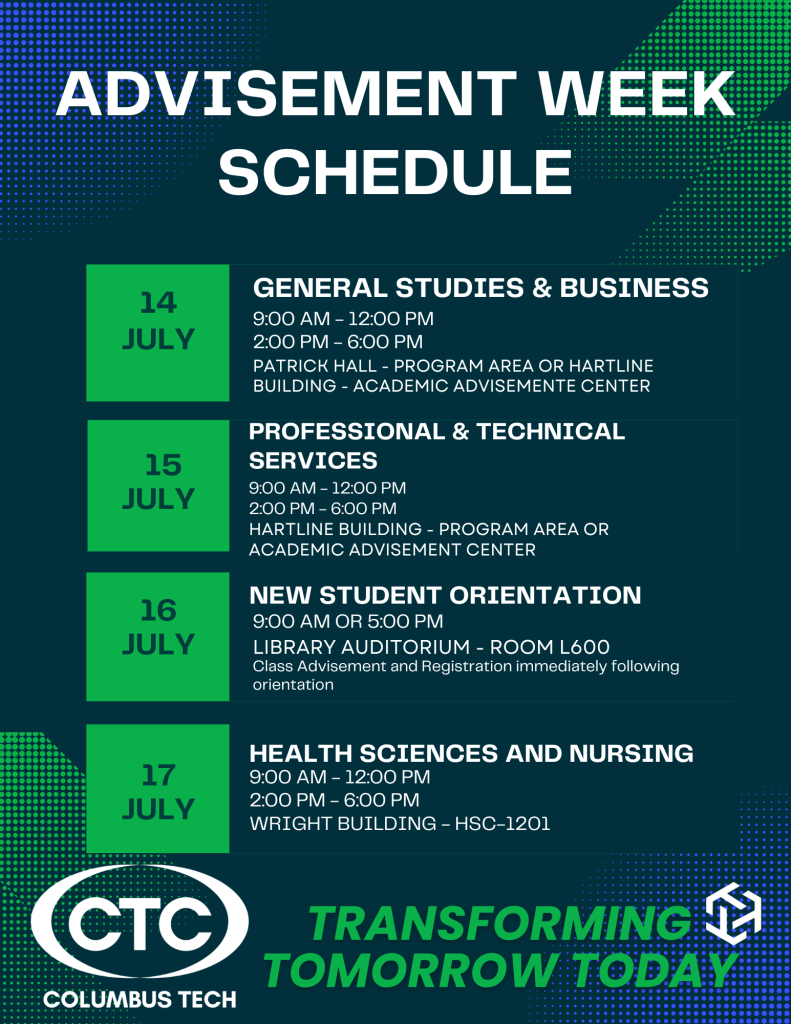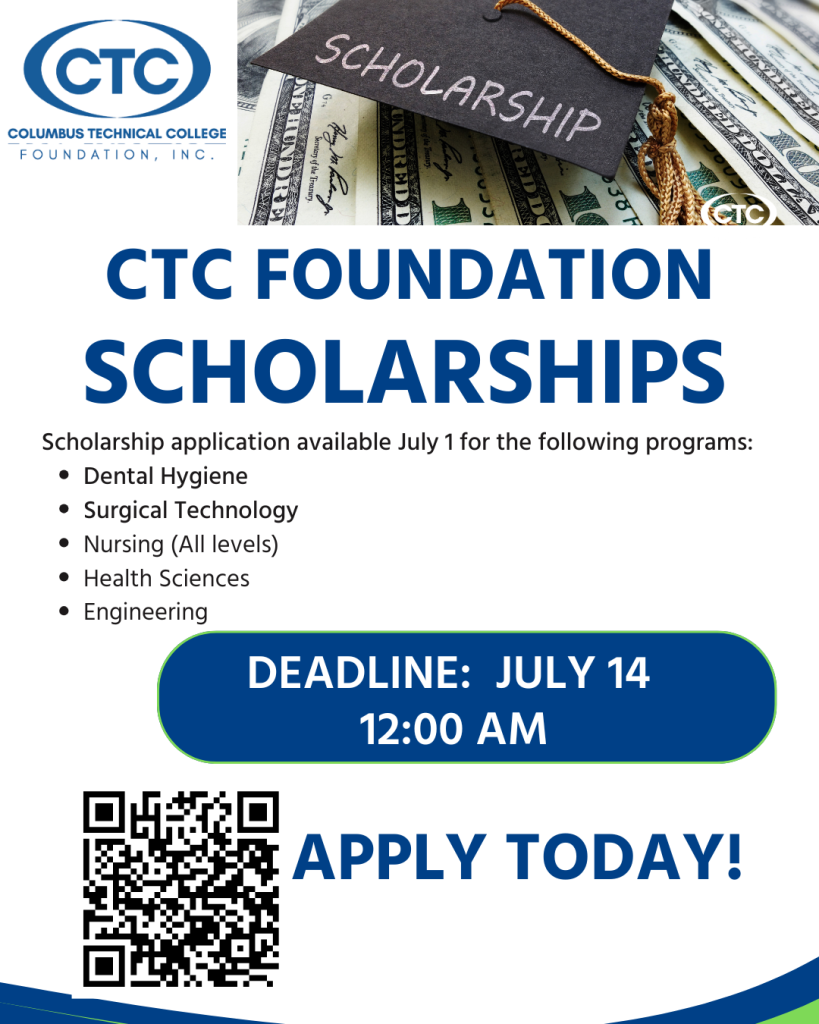Purpose of Collection Development
This policy is designed to guide the systematic development and management of Columbus Technical College Library collections of print, audiovisual, and electronic materials. Since the nature of information dissemination, networking, and library resource sharing is undergoing revolutionary change, this policy considers collection development and management issues within the dynamic framework of global access to information resources, and will require regular assessment and adjustment.
This policy is intended to define a collection development and information access program to meet the following objectives:
- To assist librarians in providing current, diverse, balanced collections of materials to support the instructional, institutional and individual needs of students, faculty and staff
- To provide access to materials in appropriate formats including print, paid online services, and free websites, consistent with the College’s fiscal resources
- To encourage instructional faculty participation in collection development and organized access to electronic resources
- To foster coordinated collection development and resource sharing between TCSG colleges and participating GALILEO colleges
- To serve distance education students and faculty by providing remote access to materials in the most appropriate and cost-effective manner
- To assist with short-range and long-range fiscal planning
Collection Development Responsibility
Collection development is coordinated college-wide by the Dean of Library Services. The members of the professional library staff work cooperatively in recommending and selecting materials for purchase. Standard reviewing journals such as Library Journal and Choice, reviewing recommendations from publishers, and other professional book suppliers are utilized in print and online formats by library staff providing library services, who are directed to select appropriate materials, especially in areas of collection weakness or heavy usage.
Full-time and part-time faculty are encouraged to recommend materials in their academic disciplines. Notices are sent to faculty via e-mail, written memos, and by telephone requesting faculty suggestions. Suggestions are also taken during the annual faculty evaluation of the collection. An online Acquisitions Request form is provided to facilitate faculty participation. All suggested titles are reviewed and evaluated by the professional library staff. The Dean of Library Services has final authority in the selection of materials.
General Criteria for Selection of Materials
- Relevance to the curriculum and appropriateness to the user
- Timeliness and lasting value of material
- Reputation of the author, issuing body, and/or publisher
- Presentation: style, clarity, reading level
- Aesthetic considerations: literary, artistic, or social value; appeal to the imagination, senses, or intellect
- Special features: detailed, logical, accurate index; bibliography; footnotes; appropriate illustrations
- Physical and technical quality: paper, typography, and design; physical size; binding; durability
- Ease of access or user-friendliness
- Suitability of content to form
- Depth of current holdings in the same or similar subject
- Demand, frequency of interlibrary loan requests placed for material on the same or similar subject
- Cost of material relative to the budget and other available material
- Availability in alternate physical or online formats
Types and Formats of Materials Collected
Printed books are collected in clothbound editions unless cost is significantly higher than a paper edition. Books that should be frequently updated (nursing/medical texts, computer manuals, test preparation materials) are purchased in paper formats when available.
Electronic books are considered when they provide the most current and/or cost-effective format, or to support distance education courses and programs. Cooperative lease/purchase of electronic books via GALILEO, LYRASIS and other cooperatives are pursued as a cost-effective method of providing access to book collections. Duplication is considered for electronic books provided by such cooperative lease/purchase. In addition to general selection criteria and online resources/Internet-based materials selection criteria, consideration is given to the availability of an archival copy of electronic texts purchased in perpetuity.
Popular fiction having short-term interest among readers is not purchased. Established literary works and new works receiving critical acclaim in the literary field are considered, especially those works that support literature course offerings. Literary prizewinners are purchased when funds permit.
Textbooks are not selected unless recommended by faculty as exceptional resources. Exceptions are those that have earned a reputation as “classics” in their fields, or which are the only or best sources of information on a particular topic, or for a particular user group. Their high cost, frequent revision, and generally poor bindings make most textbooks a poor investment for the libraries’ permanent collections.
Faculty research in pursuit of advance degrees is not supported by the book collection. Interlibrary loan is regularly provided in a timely manner to meet faculty and administrative research requirements for books.
Reference materials support the research needs of Columbus Technical College students, faculty, and staff. The reference collection contains, but is not limited to, encyclopedias, dictionaries, atlases, directories, indexes, bibliographies, statistical compilations, handbooks and Internet resources. Though items selected for this collection primarily support the academic programs offered at Columbus Technical College, core academic reference works published in other subject areas are also selected when they provide fundamental bibliographic access to, or an introductory overview of, an academic discipline. Items in the reference collection normally do not circulate. The reference collection is reviewed by the librarians annually to insure currency and accuracy. Reference materials are collected in print, electronic, and online formats.
Serials/periodicals/journals/newspapers are publications issued in successive parts bearing numeric or chronological designations and intended to be continued indefinitely. Serials are issued in print, microform, and electronic formats. All formats will be considered in the library’s purchase and/or access decisions. Serials are acquired via subscription. Individual issues or reprints will rarely be purchased.
The selection of serials requires a continuing commitment to the cost of the title, including maintenance, viewing and reproduction equipment, and storage space. The escalating cost of serials subscriptions demands that requests for serials subscriptions be carefully reviewed before they are purchased for the collection, and that an ongoing evaluation of current subscriptions be conducted.
Since it is often becoming more cost-efficient to purchase electronic access or document delivery services for serials instead of acquisition through print subscription, this delivery method will be chosen when fiscally prudent. Cooperative acquisition (regional and statewide) of electronic serials databases is actively pursued. Electronic serials subscriptions licensing contracts may limit access to currently enrolled students, faculty and staff. The professional library staff reviews local serials collections and accessibility of online titles annually.
The serials collection supports the research needs of the Columbus Technical College curriculum. No attempt is made to support research needs of faculty pursuing advanced degrees. Interlibrary loan is regularly provided in a timely manner to meet faculty and administrative research requirements. Factors to be considered in the acquisition of serials are:
- Support of academic programs
- Suitability for intended audience including special users
- Uniqueness of subject coverage for the college library
- Cost, including rate of price increases, cost of storage, and/or access costs
- Professional reputation
- Usage or projected usage
- Indexing and abstracting in sources accessible to library users
- Demand for title in interlibrary loan or document delivery requests
- Accessibility within resource sharing groups, consortia, and/or through document delivery or courier services
- Full-text availability via electronic access
- Cost, including rate of price increases, cost of storage, and/or access costs
Audio-visual materials, compact discs and DVD’s, are collected and housed in the Library. Audiovisual materials are purchased at the request of the faculty. Limited budgets support only the narrow purpose of providing audiovisual materials for classroom support. No attempt is made to augment general collections with audiovisual selections. Some audiovisual materials circulate only to faculty for use in classrooms, or must be viewed in the library, due to copyright online streaming provide more of the demand for video resource.
Electronic materials will be collected when that format is most effective in support of teaching and research, and when cost effective. CD-ROM and diskette formats are supported in the Library.
Online Resources/Internet-based materials will be considered when they provide the most current and/or cost-effective resources. The following online resources will be actively selected:
- Licensed commercial, fee-based resources and databases will be selected when they provide cost-effective means of providing resources for the Library. These resources may include electronic books; citation, abstracting and full-text databases covering journals, magazines, newspapers or reference materials; and databases providing information portals for specific subject areas. In additional to general selection criteria, the following criteria will be used:
- The product has broad appeal to the TCSG Library Council (GALILEO databases), a large number of Columbus Technical College Library users, or will serve the special needs of a user group
- The product compares favorably with similar products
- Multiple user access is preferred
- The interface is user-friendly
- Appropriate online help is available
- Good technical support is available
- The availability of usage statistics is highly desirable
- The vendor allows a trial of the actual product
- The library is not required to subscribe to both print and electronic versions of the product, unless this is desired
- The license agreement allows normal rights and privileges accorded libraries under copyright law
- The license agreement gives the library indemnification against third party copyright infringement
- Products available via GALILEO are preferred
The Library will attempt to balance print, electronic and online resources without unnecessary duplication. Print, audiovisual, or electronic resources may be duplicated with fee-based online resources when:
- The resource has significant historical value
- One format is unstable
- A cost benefit for purchasing multiple formats exists
- Multiple formats meet the different needs of user groups
- Usage justifies additional copies
World Wide Web resources and other free resources:
- Freely linkable World Wide Web resources, and other freely available resources, services and databases, will be selected and provided as links from the Library webpage via the Georgia Virtual College web-based subject directory of Internet resources.
In addition to resources located via Internet directories and search engines, several sources are consulted for current reviews of Internet resources. These sources of selection include Choice, CRL News, American Libraries, Library Journal, and The Scout Report. Several high-quality subject indexes are also regularly consulted, such as the Internet Public Library and The WWW Virtual Library. Duplication of print resources is acceptable for free Internet resources since it provides an additional point of use.
The College Archives Collection provides an organized collection of selected historic documents of Columbus Technical College. The Library has maintained a scrapbook of clippings related to the college since its inception in 1962. The archives include the following:
- Newspaper clippings
- College catalogs
- College Technical Trends
All library materials will be collected primarily in the English language, with the exception of instructional material for foreign language, and limited materials supporting the “English as a second language” students.
Duplicates will be purchased only when high demand is anticipated. Duplicate materials will be added to the Library collection if warranted by heavy usage of copies already held by the library.
Out-of-Print Materials are rarely purchased. Most selections are current publications. The library recognizes the need for some out-of print purchases, primarily for replacement of heavily used items, which are lost or withdrawn due to poor physical condition. However, in view of the difficulty and expense in obtaining rare, out-of-print, and reprinted material, it is most important to spend funds for current publications of long-term worth.
Detailed Analysis of Subject Collections
This section describes the breadth and depth of subject collections. The following categories for collection development levels are used by Columbus Technical College Library, to describe collections appropriate for the support of a technical college curriculum.
Columbus Technical College provides Associate degree, diploma, and certificate programs, and therefore does not endeavor to collect at the research level, which describes a collection that includes the major published source materials required for dissertations and independent research, nor the comprehensive level, which include all significant works of recorded knowledge for a defined field



